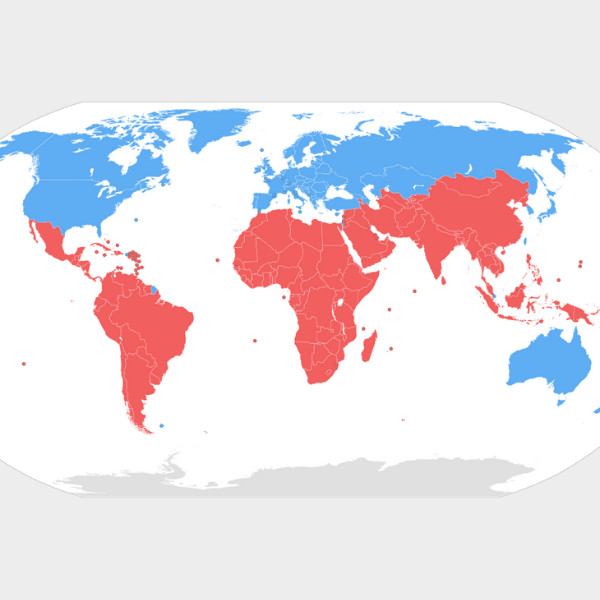Rafael Beleboni, Brazilian foreign affairs officer specialized on international cooperation for development, presents in his article; “The rise of the global South: Can South-South cooperation reshape development?”, An innovative perspective on the development cooperation strategy, based on the exchange of knowledge, implemented in the Global South.
In 1955, what President Sukarno called “the first intercontinental conference of people of color in human history” was held in Bandung, Indonesia. Bandung set the stage for what would later be formally labeled in international development as “South-South Cooperation” a reciprocal self-reliance movement that emphasized that developing countries help each other.
Today, due to the new challenges that developing countries are facing, mutual aid remains important. To achieve sustainable impact, all stakeholders must work to strengthen local capacities and create strategies adapted to the country and the context. Knowledge-based cooperation, inspired by emerging countries’ own solutions to deal with similar problems, can be the strategic advantage of South-South cooperation.
In the past two decades, many countries in the South have chosen to invest in knowledge-based growth, linked to experiential learning and capacity development for policy formulation. This approach reaped great benefits, generating a positive cross-sector impact on human development, competitiveness, and economic performance indicators. Building on these experiences, sharing technical knowledge through policy exchange enables countries to learn from each other. The acquisition and dissemination of knowledge and social learning is the most important public good.
Far from replacing traditional aid, collaboration with and across countries in the Global South rooted in new inclusive knowledge-based growth can promote a new narrative of development cooperation. South-South cooperation today questions the conventional top-down (donor-recipient) approach, based on the conditionality of development aid. Through the exchange of knowledge, the countries of the South seek a more efficient use and development of national capacities, with greater local ownership. Beyond the simplistic notion of solidarity among developing countries, South-South cooperation can be an effective instrument for development.
To access the full article, visit: https://ksr.hkspublications.org/2019/11/26/the-rise-of-the-global-south-can-south-south-cooperation-reshape-development/.

